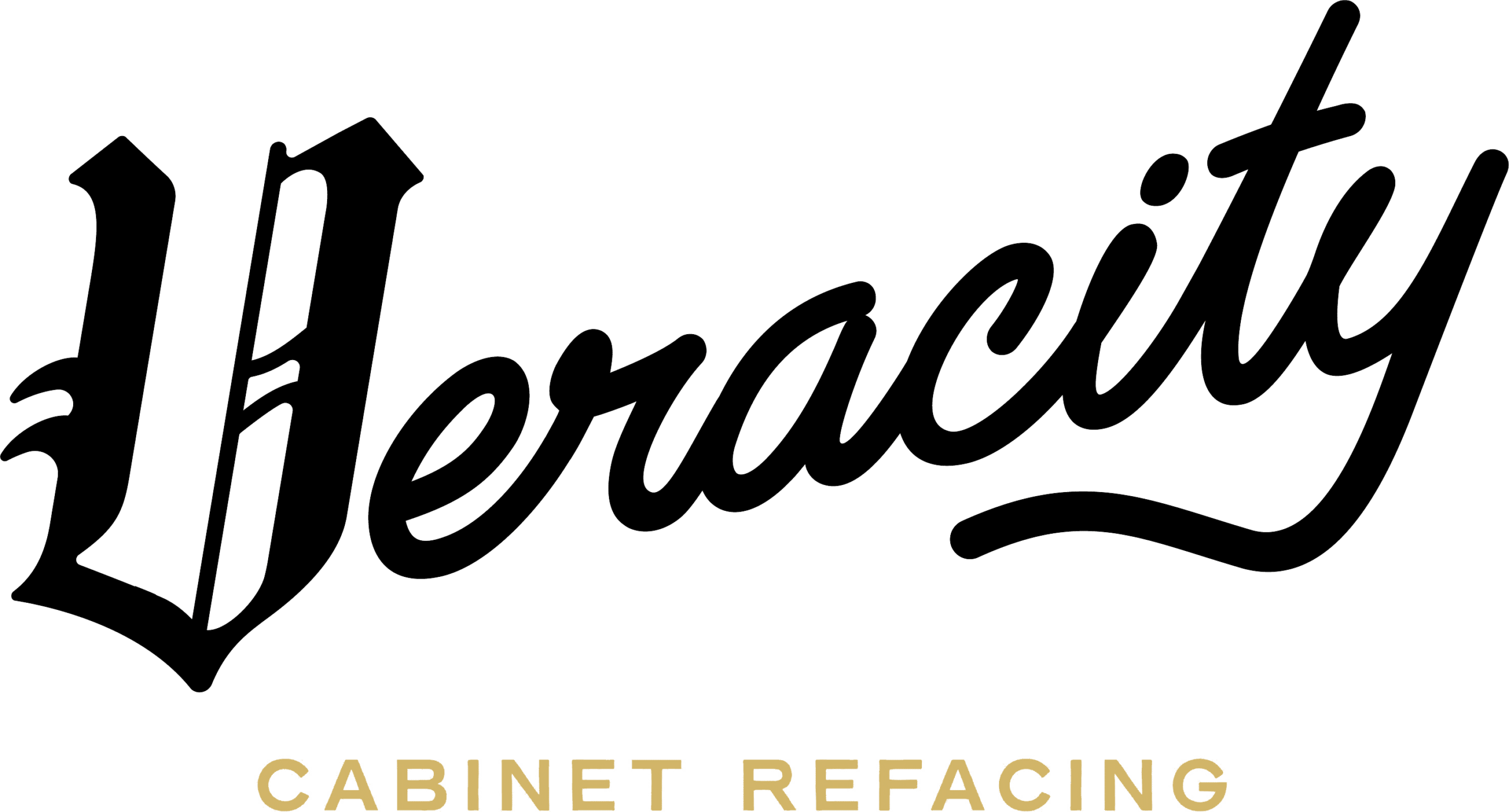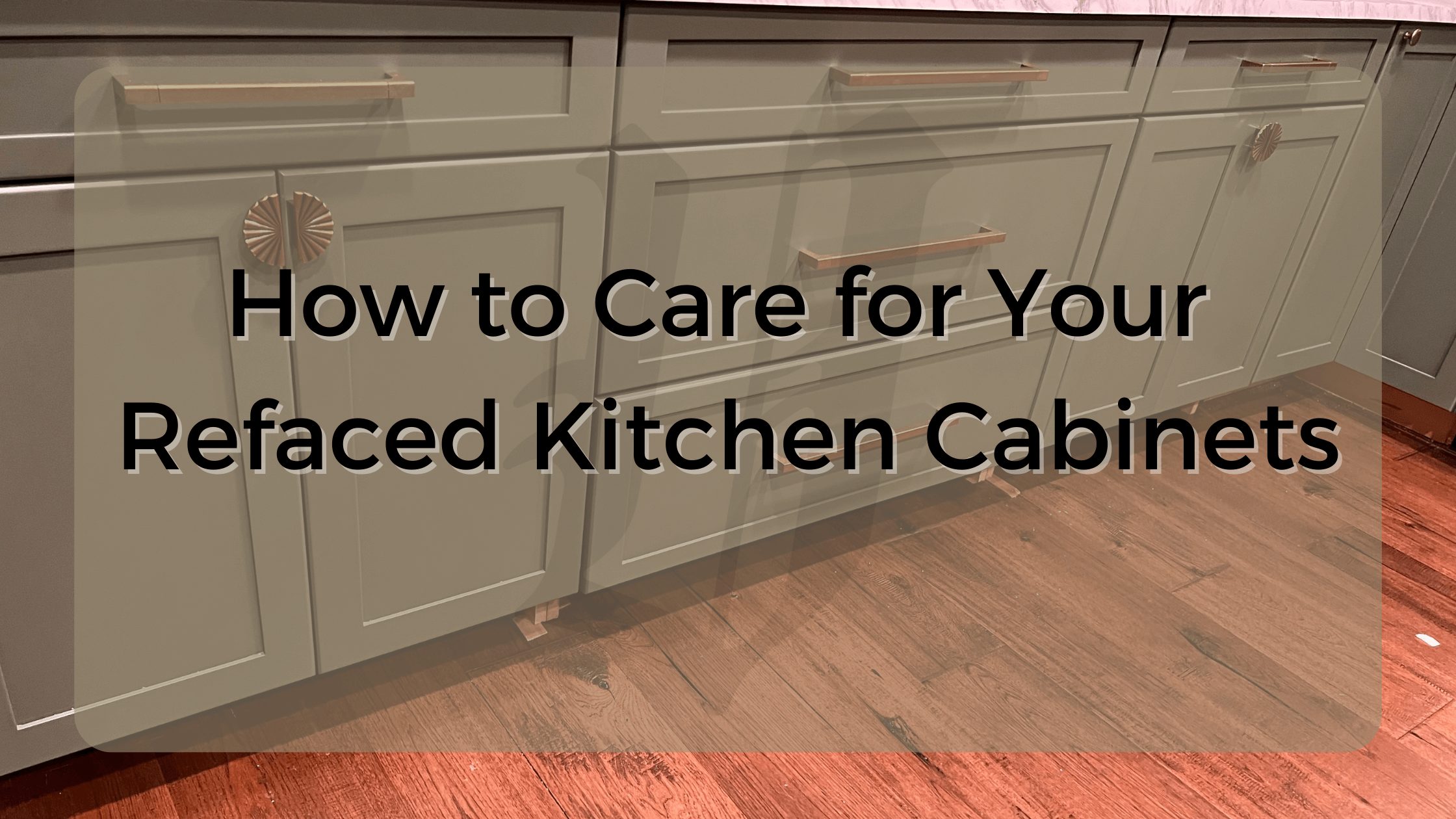Your cabinets are newly refaced, and you’re standing in your kitchen admiring the difference between your old, outdated doors and your beautiful, updated space. Now, to keep them looking great… Fortunately, your newly refaced kitchen cabinets shouldn’t be any more difficult to care for than your old ones. In fact, they may even be easier to keep clean due to the smooth, even surfaces that wipe easily and don’t hold as much dirt in the crevices.
Still, the kitchen is a highly-trafficked area, and dirt and grime do happen! As long as you stay on top of cleaning your cabinets somewhat regularly, though, it should only take a few minutes to wipe off any dirt that collects. It doesn’t take any fancy tools or equipment to keep your cabinets looking great.
Here are some tips for keeping your cabinets clean and avoiding damage.
How to Care for Your Newly Refaced Kitchen Cabinets
- Clean them regularly
- Wipe spills promptly
- Avoid dragging items across the face frames/veneer
- Avoid silicone oil and wax-based cleaners
1. Clean them regularly – Effective cleaners for refaced cabinets
There are a few different options for cleaning your newly refaced cabinets.
Hot water
In many cases, all it takes is some hot water and a dishcloth or sponge to wash the dirt and grime off of your cabinets. Because hot water has more kinetic energy, it’s a more effective cleaner than cold water.
It only takes a moist or wet rag or sponge to clean. Soaking your cabinets is not necessary, and excess amounts of water left on your cabinets can actually damage them. Simply wash your cabinets and if there’s leftover water, wipe it off.
Dish soap
If hot water doesn’t do the trick, add a few drops of dish soap to some water and try again. Dish soap is gentle enough to not harm your cabinets, but strong enough to remove grease and tougher stains.
Again, you can simply use a rag or soft sponge to wipe your cabinets with dish soap. Avoid items that may scratch your cabinets, like steel wool or rough cleaning pads. After cleaning with dish soap, wipe off any remaining soap and water in order to prevent warping.
Homemade cleaners
Vinegar water is another effective cleaner for your cabinets. Vinegar is a gentle, non-toxic cleaner that’s safe for children and pets. At the same time, the acid in vinegar is a highly effective cleaner for removing grime, dirt, and grease. It’s also a very inexpensive option.
You can make your own vinegar solution by mixing one part vinegar with one part water. Keep it in a spray bottle for easy access anytime you need to clean your cabinets.
All-purpose cleaners
Most regular household cleaners are appropriate for use on your cabinets. Your cabinet’s components (veneer, plywood, doors, and drawers) are finished with industry standard cabinet grade coatings. This means that they’re durable for holding up to most regular household cleaners.
You should, however, avoid using silicone oil and wax-based cleaners on your cabinets. We’ll talk more about why this is shortly!
If you’re not sure whether a product is safe to use on your cabinets, test it out on an inconspicuous spot first.
2. Wipe spills promptly
It’s important to keep large amounts of moisture off of your cabinets. Whether a drink is spilled, a batch of soup splashes everywhere, or large moisture spots are left from cleaning, you’ll want to remove any excess moisture promptly.
If needed, you can wipe spills first with hot water, soap, or a household cleaner. Then, simply, take a dry rag or towel and remove any excess water.
Excess moisture can damage the finish on your cabinets, whether they have a wood or painted veneer. It can also cause warping. To help your cabinets experience the longest life possible, keep them free of too much moisture.
3. Avoid dragging items across the face frames/veneer
No cabinets will hold up long to heavy items that are dragged or dropped on the face frames and veneer. Kitchen tools such as heavy pots and pans, sharp items like pizza cutters and knives, or weighty cast irons can cause scrapes and even dents if dragged across the frames or doors of your cabinets.
With regular usage, your cabinets should last for years to come.
4. Avoid wax-based cleaners
Lastly, you should avoid using silicone oil and wax-based cleaners on your cabinets – whether newly refaced or not. These cleaners apply a film that, rather than cleaning off grime, can actually attract more grime and dirt. A couple of these more popular cleaners on the market include Pledge and Old English.
In addition, if you ever want to repaint or reface your cabinets in the future, the wax or silicone oil will prevent the new paint or veneer from adhering correctly to your cabinets.
Follow these simple guidelines to care for your refaced kitchen cabinets, and watch them last for years to come!
The kitchen is the heart of the home! If you’re looking to update your kitchen cabinets, schedule a phone call with us today. We’d love to talk with you about the options that are available for bringing new life to your kitchen for a fraction of the cost of new cabinets.

